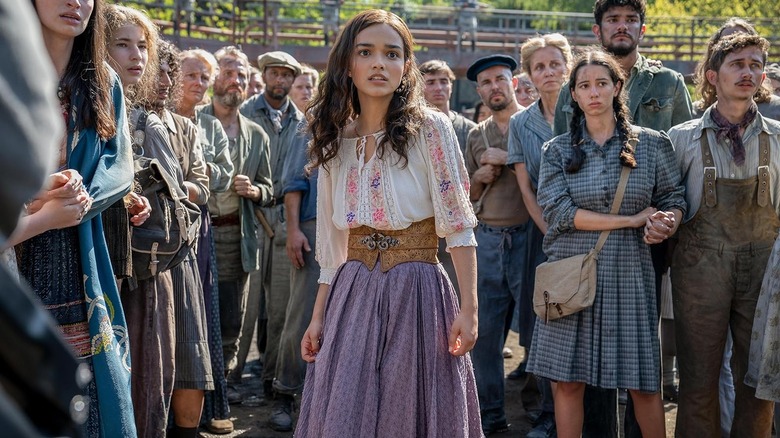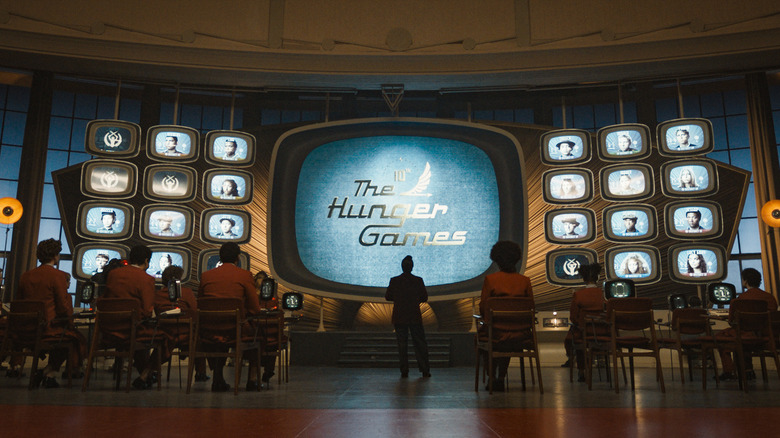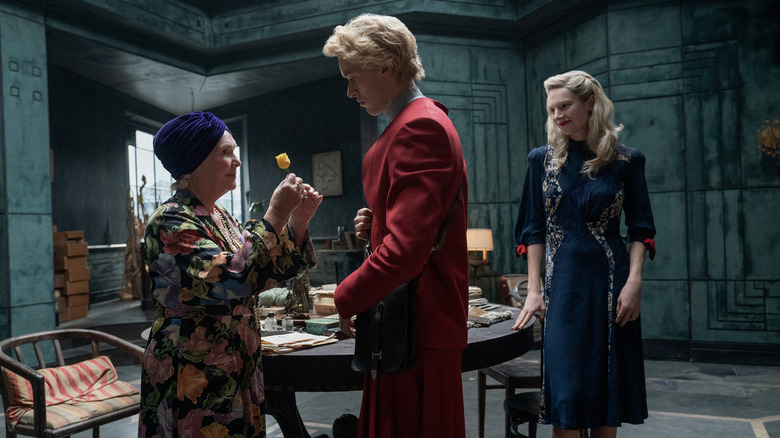The Ballad Of Songbirds And Snakes Director Will Make Another Hunger Games Under One Condition [Exclusive]
With the latest "Hunger Games" movie, "The Ballad of Songbirds and Snakes," now out in theaters, viewers might be wondering: Is this the last one? There are still 73 in-universe Hunger Games we've never seen, after all, so presumably there's plenty more storytelling material to squeeze out of the franchise. What about a movie focused on the character Finnick's Hunger Games? Or maybe one so long ago that viewers don't know who'll win, bringing us back to the genuine suspense and unpredictability of the original book?
Director Francis Lawrence, who's stuck with the "Hunger Games" films since "Catching Fire," would happily make another one. But as he explained to /Film's Jacob Hall, he just has one condition:
"I have to wait for [author] Suzanne [Collins]. [...] I just love that she comes up with something thematic and then writes from there. And so it feels like it has just a reason to exist. And so I get asked this a lot, and I know a lot of fans are like, 'Oh, do the Finnick Games, do the Haymitch Games, or let's do a Tigris spinoff.' Or something like that. But it's not just about picking a character and doing a game. Suzanne has to have something to say. I would be happy to go back if she wrote something else."
It's bitter news for "Hunger Games" fans, as Suzanne Collins hasn't announced she's working on any new books any time soon. Considering the 12-year gap between her "Mockingjay" novel and the publication of "The Ballad of Songbirds and Snakes," even if she does eventually write one, it'll still probably take a while for the adaptation to hit the big screen. Maybe there will be another movie set in this universe in the meantime, but Lawrence, it seems, won't be involved.
Why a straightforward Hunger Games book is so rare
This news is interesting in part because of how it connects to a lot of fans' disappointment with "The Ballad of Songbirds and Snakes" when it first came out. A common question was: Why write a story about the young Coriolanus Snow, a Capitol citizen who isn't fighting in the Games themselves? The games themselves have always been the main appeal of the "Hunger Games" franchise, so why move away from it?
This complaint was around even back when Collins' initial "Hunger Games" novel trilogy was being released, as none of her original three books fully grappled with the idea of 24 children fighting to the death. Even the first book, which handled the premise the most straightforwardly, was more interested in the propaganda aspects and the budding revolution surrounding the games. When it comes to the actual moral quandary of having to kill a fellow child to save oneself, "Hunger Games" protagonist Katniss Everdeen is largely spared. She only kills "bad" tributes, the ones we're never meant to care about, and even then it's either done in self-defense or as an act of mercy.
That's why when discussing potential spinoffs and prequel ideas, fans often gravitate to a straight-forward book about a regular Hunger Games — one that doesn't turn out to be all about a revolution. Maybe there could even be a book jumping back and forth between a bunch of different tributes' perspectives. That way, the reader not only gets to care about each of them but genuinely wouldn't know which of them would survive. Whereas Collins' original trilogy hampered its suspense by making Katniss the sole point-of-view character, a "Hunger Games" book with a large-but-dwindling cast of POV characters could make for a riveting, if brutal, experience.
But that would be sort of missing the point
Of course, such a book is unlikely to be penned by Collins, seeing as the whole point of the series is that the Hunger Games are bad, and we shouldn't be enjoying them. A book without the revolutionary aspects or the strong commentary on totalitarianism would likely become exactly what the series itself has been critiquing: A shameless exercise in mining entertainment out of innocent people's suffering. There has to be something extra going on to make it more than that. As Lawrence himself put it, "Suzanne has to have something to say." When she writes a "Hungers Games" book, it always "feels like it has a reason to exist."
So, for now, at least, the "Hunger Games" franchise is over, but that's not necessarily a bad thing. In a world of constant reboots, meaningless spinoffs, and other hollow continuations, there's something refreshing about a franchise that isn't in a rush to make more, more, more. When we do get another "Hunger Games" book, and likely another movie to follow it up, we'll have the luxury of knowing this isn't just a cash grab. If the next movie ever comes, we'll know it's telling a story that truly matters.
"The Hunger Games: The Ballad of Songbirds and Snakes" is currently playing in theaters.


